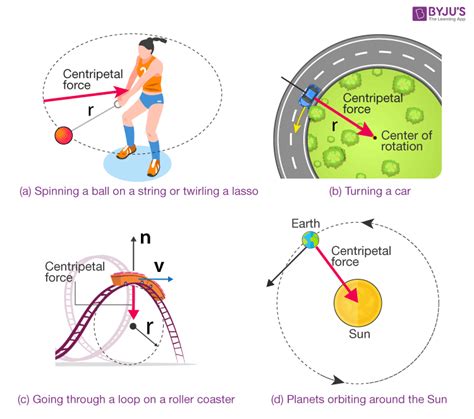Centripetal force is a force that draws objects towards a center. In human geography, centripetal forces are often used to explain why people migrate to and from certain regions.

There are many different factors that can contribute to centripetal force, including economic opportunity, political stability, and cultural factors. For example, people may be drawn to a region with a strong economy and a stable government. Similarly, people may be drawn to a region with a vibrant culture and a strong sense of community.
Centripetal forces can also be used to explain why people stay in a particular region. For example, people may stay in a region because they have family and friends there. Similarly, people may stay in a region because they are familiar with the local culture and language.
The following are some specific examples of centripetal forces in human geography:
- Economic opportunity: People are often drawn to regions with strong economies and high wages. For example, in the United States, people are drawn to states like California and New York, which have strong economies and high wages.
- Political stability: People are often drawn to regions with stable governments and low levels of crime. For example, people are drawn to countries like Canada and Australia, which have stable governments and low levels of crime.
- Cultural factors: People are often drawn to regions with vibrant cultures and a strong sense of community. For example, people are drawn to countries like France and Italy, which have vibrant cultures and a strong sense of community.
- Family and friends: People are often drawn to regions where they have family and friends. For example, people may move to a region to be closer to their parents or children.
- Familiarity with local culture and language: People are often drawn to regions where they are familiar with the local culture and language. For example, people may move to a region where they are familiar with the local language and culture.
Centripetal forces can have a significant impact on human migration. By understanding the factors that contribute to centripetal force, we can better understand why people migrate to and from certain regions.
How Centripetal Forces Can Be Used to Improve Human Well-Being
Centripetal forces can be used to improve human well-being in a number of ways. For example, centripetal forces can be used to:
- Attract people to regions with strong economies and high wages. This can help to improve the economic well-being of both the individuals and the region as a whole.
- Attract people to regions with stable governments and low levels of crime. This can help to improve the safety and security of both the individuals and the region as a whole.
- Attract people to regions with vibrant cultures and a strong sense of community. This can help to improve the social well-being of both the individuals and the region as a whole.
- Help people to stay in their home communities. This can help to preserve the social and cultural fabric of communities.
Conclusion
Centripetal forces are an important factor in human migration. By understanding the factors that contribute to centripetal force, we can better understand why people migrate to and from certain regions. We can also use centripetal forces to improve human well-being by attracting people to regions with strong economies, stable governments, and vibrant cultures.
Tables
The following tables provide some specific examples of centripetal forces in human geography:
| Centripetal Force | Example |
|---|---|
| Economic opportunity | People moving to California for high-paying jobs |
| Political stability | People moving to Canada for a stable government |
| Cultural factors | People moving to France for its vibrant culture |
| Family and friends | People moving to be closer to their parents |
| Familiarity with local culture and language | People moving to a region where they are familiar with the local language and culture |
| Region | Centripetal Forces |
|---|---|
| California | Economic opportunity, cultural factors |
| Canada | Political stability, economic opportunity |
| France | Cultural factors, economic opportunity |
| United States | Economic opportunity, political stability |
| Australia | Political stability, cultural factors |
| Factor | Impact on Centripetal Force |
|---|---|
| Economic opportunity | Increases centripetal force |
| Political stability | Increases centripetal force |
| Cultural factors | Increases centripetal force |
| Family and friends | Increases centripetal force |
| Familiarity with local culture and language | Increases centripetal force |
| Policy | Impact on Centripetal Force |
|---|---|
| Policies that promote economic growth | Increase centripetal force |
| Policies that promote political stability | Increase centripetal force |
| Policies that promote cultural diversity | Increase centripetal force |
| Policies that support families | Increase centripetal force |
| Policies that promote language learning | Increase centripetal force |
